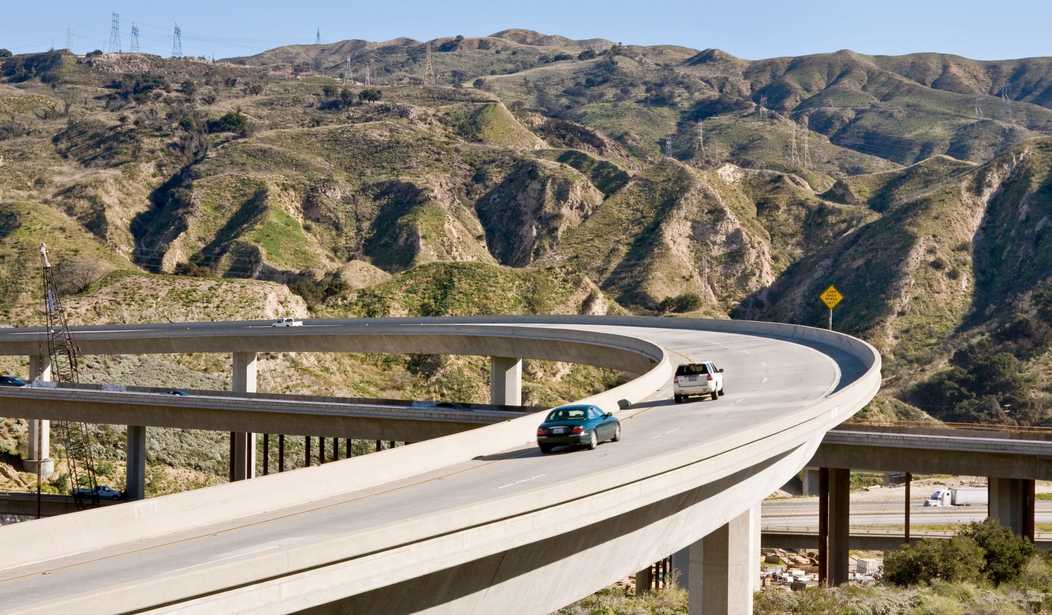California Republicans and the Sacramento Bee have welcomed Gov. Jerry Brown (D) back to Sacramento from the climate change discussions in Paris. And now that he has finished, for the time being, saving the world, they are hoping Brown is ready to tackle, as the Bee put it, “the more prosaic reality of California’s miserable roads.”
California Democrats and Republicans might disagree on the cause and cure of climate change, and what Brown and the rest of his climate change compadres in Paris really accomplished for Mother Earth.
But they have agreed the roads in their state are among the worst in the nation. There is also a bipartisan consensus it is going to take billions of dollars to repair and replace those pothole-filled stretches of asphalt. However, still at question is the most important issue to settle: Who’s going to pay the bill?
It is shaping up to be a classic political battle between those who live by the edict of tax and spend, and those who would rather not. A special legislative session in the final months of 2015 did nothing but build walls between the two camps.
Both sides plan to roll out the heavy guns in 2016.
Beyond the debate over political and spending philosophies, what rankles Republicans, and many residents, the most is that California motorists pay one of the highest gas taxes in America and are still bouncing over some of the most cratered roads in the nation.
Brown’s bureaucrats are the first to admit California’s roads are miserable and at the end of the life expectancy. Sacramento transportation experts say at least 41 percent of the pavement that carries the state’s traffic needs to be fixed, repaired, or replaced.
That doesn’t mean the other 59 percent are great. A California Senate report showed 68 percent of California’s roads were ranked as poor or mediocre.
It isn’t like California politicians have been hesitant to spend money on their state’s roads. As a Calmatters journalism project pointed out in July, California spent $4.4 billion a year between 2008 and 2014 on the streets and highways. Federal stimulus money paid for a lot of that, but in 2006 voters approved a $20 billion highway bond to help out.
Even though they spent real money, all the billions were not nearly enough. Best estimates put the cost of fixing California’s mangled roads to be close to $135 billion.
Gov. Brown believes the roads are fixable but improved transportation, his administration maintains, will come at a price.
Brown’s plan is a 10-year program funded by a 6-cent per gallon gasoline tax increase that would rise with inflation and a $65 a year increase in fees that drivers pay would pay for each of their cars, trucks, or motorcycles.
Brown would also slap an 11 cent-per-gallon surcharge on diesel fuel.
His proposal has the backing of the top Democrats in California, like Los Angeles Mayor Eric Garcetti. However, even though Garcetti applauded the Brown transportation plan as being “strong,” he also described it as a “framework to reach a final compromise.”
Some members of California’s business community were more forthright in their endorsements of the Brown proposal.
Silicon Valley Leadership Group President Carl Guardino called it a “great combination of reform and revenue.”
“As we all know in Silicon Valley, where commutes are long and rough, there is an urgent need for transportation improvements that grows more urgent each day,” said Guardino.
California Assembly Republicans say the Brown plan is worse than being a dark version of what has already failed. The GOP is united in the belief that Brown’s plan would toss billions of dollars at a problem that hundreds of billions of dollars haven’t been able to fix.
Republicans said their constituents were already paying the price of a state transportation bureaucracy that has botched the job of keeping roads and highways in good shape. Now, Brown wants to keep throwing good money after bad, they maintain.
“What are they doing with the taxes Californians have been paying at the pumps?” Sen. Jim Nielsen, the vice-chairman of the Senate Budget Committee, said.
GOP leaders also said the state’s roads could be pothole-free without bureaucrats putting their fingers on taxpayers’ wallets. Assembly Republicans will be pushing a nine-point, $6.6 billion plan in January that would fix the roads “with existing resources.” In other words, no tax increases.
Assembly Republican Leader Kristin Olsen said in September that she was glad the Brown administration had finally come to the realization that it was time to “streamline road repairs, utilize public-private partnerships, and get sparking about hiring at CalTrans to eliminate waste.”
“Unfortunately, the administration’s ideas call for more than doubling the vehicle registration fees and raising the price of fuel on all Californians – we disagree and think Californians have paid enough,” Olsen said. “Funds exist to fix our roads. It’s up to the majority party to recognize this.”
Worst-case scenario: The legislature does nothing and “these roads will disintegrate to the point where they’ll have to be rebuilt, which is very, very expensive,” said Sen. Jim Beall (D).
Given the partisan discourse at the foundation of the transportation debate, Rob Lapsley, president of the California Business Roundtable, thinks it might be best to take it out of the legislature’s hands.
“It’s a whole lot easier,” Lapsley said, “to vote to put something on the ballot and let the people decide.”









Join the conversation as a VIP Member